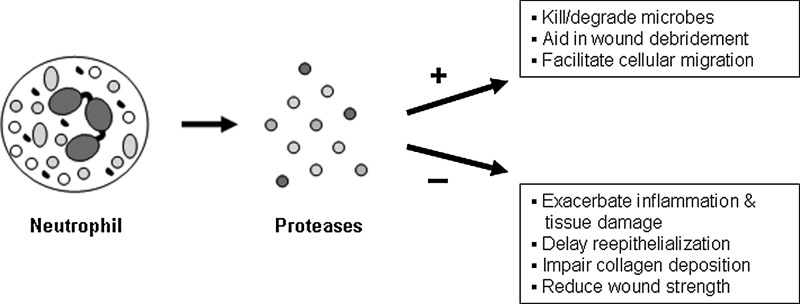Figure 4.
Beneficial and detrimental effects of neutrophil-derived proteases on wound healing. Activated neutrophils produce a number of proteases that can have positive (+) or negative (−) effects on the cutaneous repair process. Neutrophil-derived proteases help kill and degrade microbes and break down components of the extracellular matrix, which can debride the wound and facilitate cellular migration when present at appropriate levels. Conversely, excessive levels of proteases in the tissue resulting from overly active neutrophils or prolonged neutrophil recruitment can be detrimental by causing additional tissue damage and further inflammation. Consequently, defective collagen deposition, reduced wound strength, and delayed re-epithelialization can occur.

